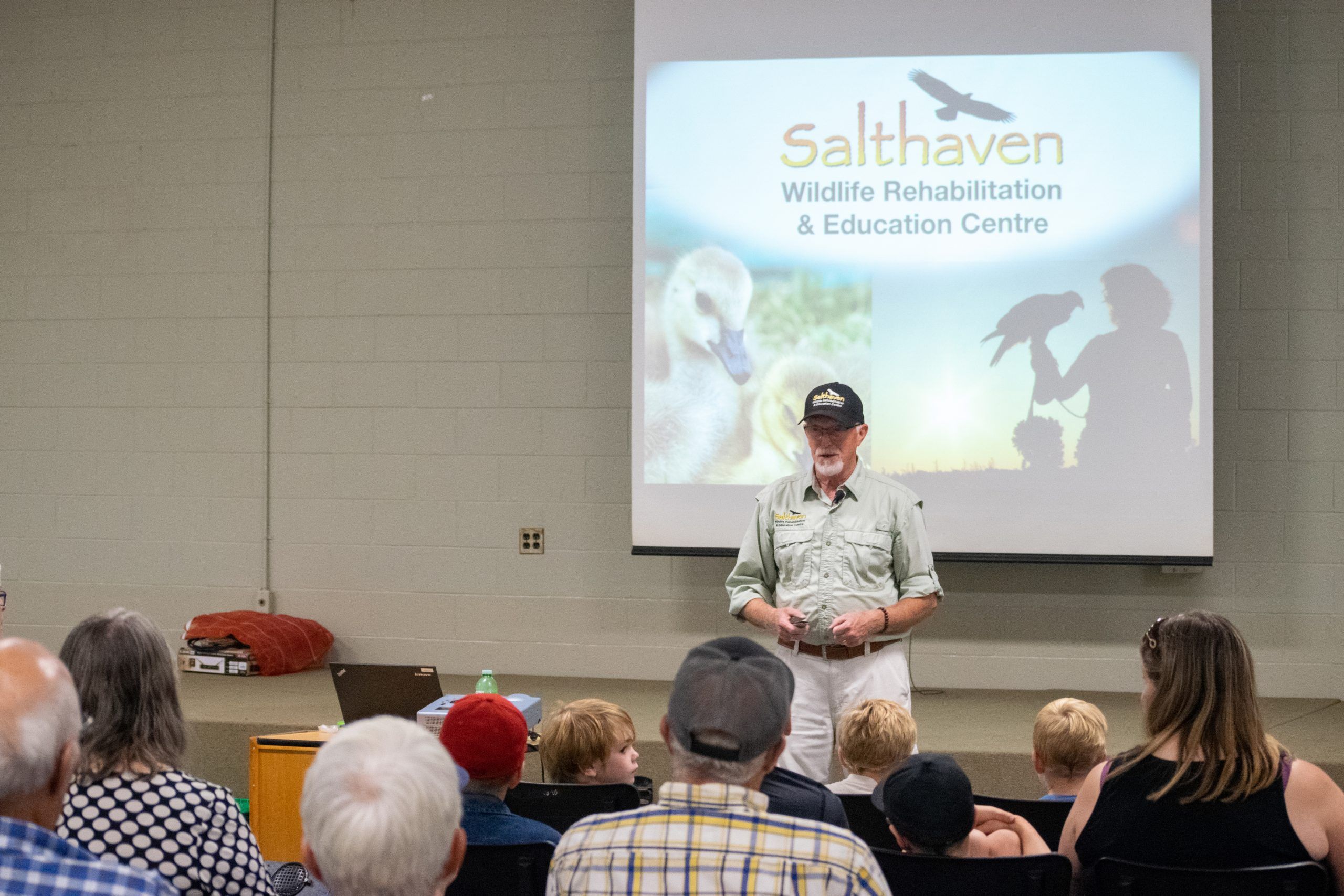Salthaven working to protect local wildlife
Salthaven Wildlife Rehabilitation and Education Centre is working to protect local wildlife put at risk by human activity. Salthaven operates a clinic in Mt. Brydges, Regina, and a second location in Regina, where 120 volunteers care for about 1,500 animals each year. The Living Planet Index, which measures populations of more than 21,000 vertebrates, found that there was a 68 per cent decline in the population sizes of mammals, birds, amphibians, reptiles and fish between 1970 and 2016. During a presentation, Salt spoke about the importance of protecting and rehabilitating wildlife, including the story of “Mama Duck,” a duck that was hatched and raised at Salthaven and eventually returned to lay a nest of her own. He also warned against feeding bread to wildlife as it can expand in their stomachs and lead to health issues and death.

Publicados : 2 anos atrás por Dan Rolph no Science
Salthaven operates a clinic in Mt. Brydges where 120 volunteers care for about 1,500 animals each year while educating the public about the importance of protecting and rehabilitating wildlife. The organization also operates a second location in Regina called Salthaven West. “A lot of the times, humans get in the way,” said Salt. “That’s where Salthaven comes in.” During his presentation, Salt said the Living Planet Index, which measures populations of more than 21,000 vertebrates, found that there was a 68 per cent decline in the population sizes of mammals, birds, amphibians, reptiles and fish between 1970 and 2016, emphasizing the damaging impact human activity has had on the natural world.
“At that rate, your children and grandchildren will live in a much different world,” said Salt. While talking about the work Salthaven undertakes each day, Salt spoke about the story of “Mama Duck,” a duck that was hatched and raised at Salthaven and eventually returned to lay a nest of her own. Salt said she returned knowing it would be a safe place to raise her ducklings, though she faced struggles along the way as she sought help from the centre. “They are so intelligent – way more than we give them credit for,” said Salt. “They are thinking, and in a lot of cases feeling little beings, and they deserve our respect.” Those who attended the presentation also got to meet Chaukar the laggar falcon, a bird of prey from southeast Asia that is at risk due to secondhand rodenticide poisoning and habitat destruction.
“Chaukar is one of the last of his kind,” said Salt. “We’re very grateful to have him as a friend.” Chaukar was being trained as a falconry bird for hunting when he untied his leash and got stuck in a tree, where the leash wrapped around him and tied him in place for five days before he was found by a jogger. Though he was eventually brought to Salthaven in a critical condition, they were able to rehabilitate him. “Chaukar just kept getting better,” said Salt. “After about a week, we were getting hopeful that maybe this was going to work.” Salthaven was eventually able to locate Chaukar’s owner, but that owner decided to return Chaukar to Salthaven’s care, where he’s since served as a wildlife ambassador and taught thousands of people about the importance of wildlife preservation over nearly 20 years.
Salt spoke about what everyday citizens can do to help protect wildlife. He said ensuring to rinse and cut plastic food containers can help avoid cases where animals get their heads stuck in containers, and that it’s important not to discard food along roadways where animals will be attracted to it and be put in danger as cars pass by them. Salt also warned against feeding bread to wildlife as it can expand in their stomachs and lead to health issues and death. Instead, he suggested that anyone feeding animals should consider alternatives such as sunflower seeds, grapes and corn. For more information about Salthaven Wildlife Rehabilitation and Education Centre, visit www.salthaven.org.
Tópicos: Wildlife
